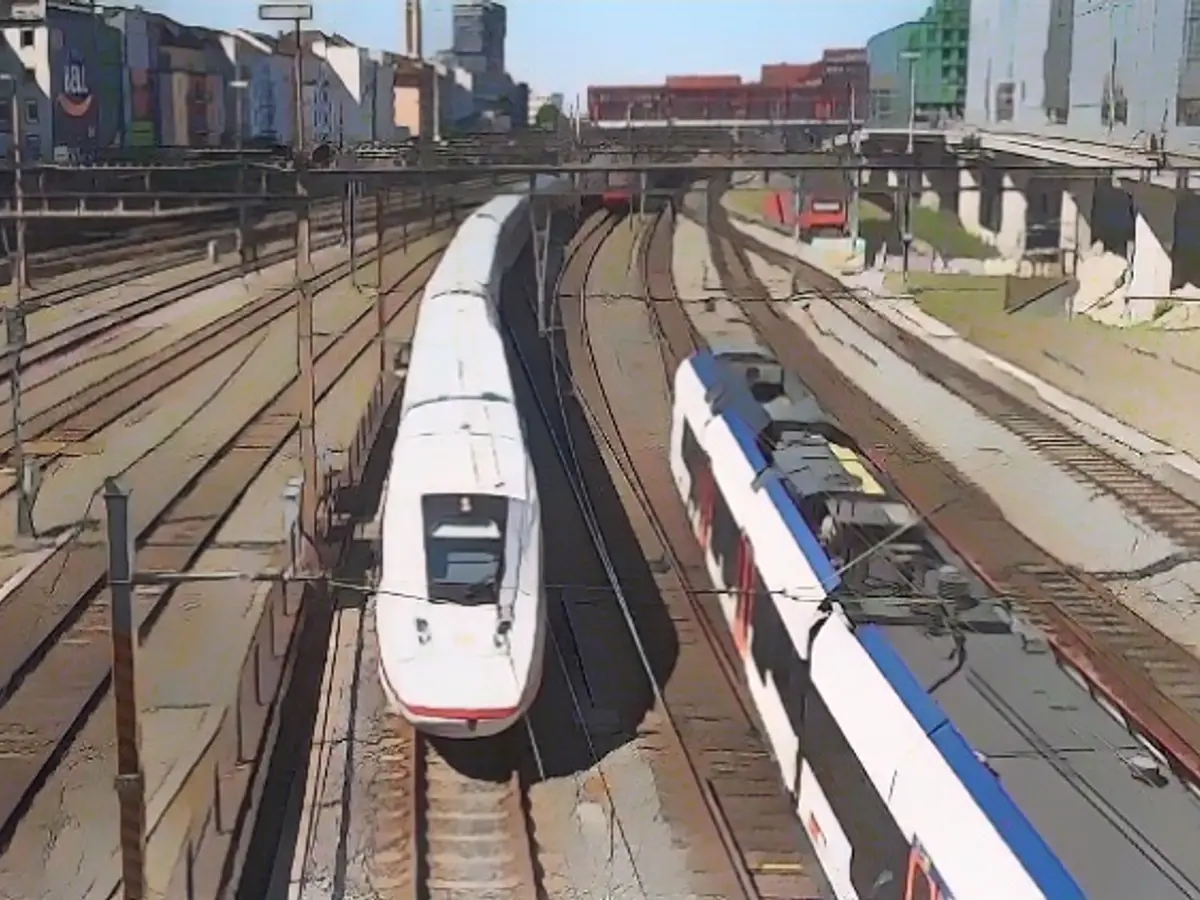Frustrated Swiss Offer Tips to Persistent German Rail Travelers
In nearby countries like Austria and Switzerland, train traffic generally runs smoothly. However, German trains often leave the Swiss populace in a state of frustration. The Swiss predict "crisis mode" for rail traffic over the Rhine route from Germany for the following two years as well. One piece of advice to German rail travelers may not offer much solace.
Switzerland is preparing for two more years of "crisis mode" for rail traffic on the Rhine route from Germany. According to Peter Füglistaler, Director of the Swiss Federal Office of Transport, "Germany" is the culprit behind the delay in expanding the rail freight corridor from Rotterdam on the North Sea to Genoa on the Mediterranean.
Switzerland and Italy are far from reaching a resolution, but at least some critical decisions have been made in Germany. Füglistaler anticipates several major construction sites and closures in 2024 and 2025. This is expected to affect both freight and passenger traffic equally.
In 1996, Switzerland and Germany agreed in an international treaty that the Karlsruhe-Basel route would be expanded to four lanes. This expansion was intended to provide more space for passenger and freight trains.
Freight trains regularly undergo cancellations
The Swiss are irritated by the delays and hold-ups of cross-border passenger trains from Germany. Trains that are more than 10 to 15 minutes late are currently abandoned at the border. Swiss Railways (SBB) operate their own trains from Basel with punctual departures. Travelers from Germany then have to switch to the subsequent train there.
Füglistaler shared that the existing corridor functions reasonably well, but only with "very poor quality." He emphasized that "the strongest argument for rail freight transport is reliability." It is not about speed, but clear commitments about when goods will arrive at their destination. Currently, the Swiss are unable to keep this promise. They need to focus intensively on improving quality in this regard.
Stay patient, Füglistaler advises Deutsche Bahn customers
Füglistaler's advice to Deutsche Bahn customers: "Don't lose hope," he said. "Stay with Deutsche Bahn, be patient, it will get better. But it will require time. So have patience." Füglistaler's message to the transport minister: "The future is the railways," he said. "You require decisions, political will, and stamina."
A spokesperson for Deutsche Bahn conceded that other priorities had been given precedence in rail transport policy for years. Protestors had almost completely halted the expansion for several years. However, one-third of the 200-kilometer line between Karlsruhe and Basel is now operational. "By 2035, Deutsche Bahn will have a continuous four-track line between Karlsruhe and Basel, and by 2041, the line will be completely upgraded to enable speeds of up to 250 kilometers per hour."
Further Readings:
Despite neighboring countries like Austria and Switzerland boasting smooth rail traffic, trains from Germany often leave their Swiss counterparts feeling frustrated. The Swiss anticipate "crisis mode" for rail traffic over the Rhine route from Germany for two more years.
Germany is criticized for failing to address issues related to the expansion of the rail freight corridor from Rotterdam to Genoa by Peter Füglistaler, Director of the Swiss Federal Office of Transport.
Source:
Enrichment Insights:
- Construction Work: The complete closure of the Rhine Valley Railway in August 2024 for construction work has disrupted freight traffic. Alternative routes and measures must be implemented to maintain stability and resilience in rail services.
- Aging Rail Infrastructure: The deteriorating condition of the aging rail infrastructure, particularly in Germany, is a significant burden on transport reliability. Issues such as insufficient capacity, additional kilometers in electrified diversionary routes, and the need for preventive maintenance to ensure technical quality wait resolution.
- Limited Transport Capacity: The Rhine route faces challenges related to its limited transport capacity, which is exacerbated by the need to divert traffic due to construction and infrastructure issues. Congestion and delays can result, further complicating the situation.
- Regulatory Inconsistencies: Regulatory inconsistencies along the route, including customs procedures, tariff structures, and trade regulations, can lead to inefficiencies in border crossings and transit logistics, adding to the complexity and potential disruptions.








